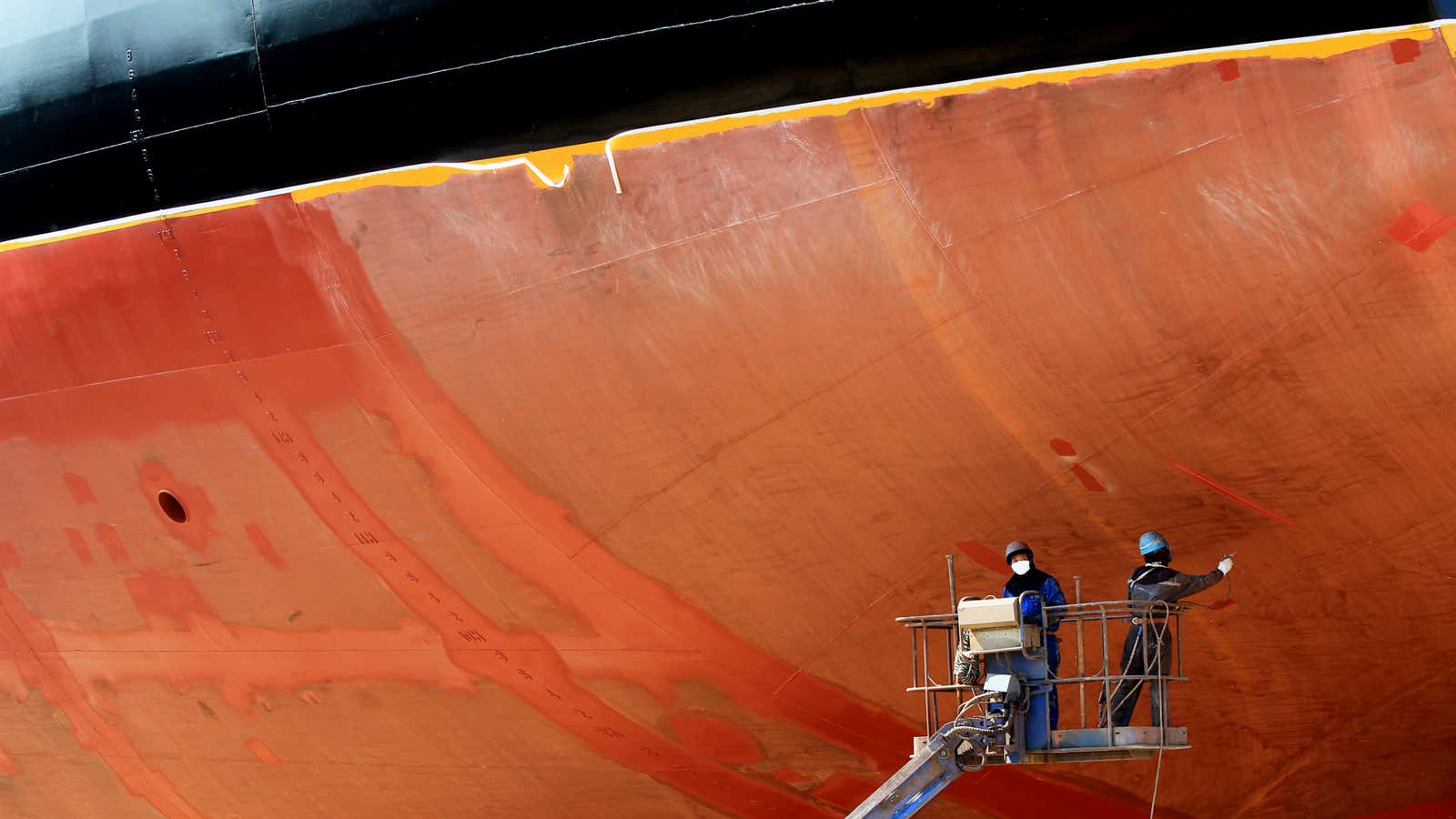China’s Rongsheng Heavy Industries—the largest private shipbuilder in the world’s number one shipbuilding country—is in a bad shape. Struggling with plummeting orders and soaring debts, on Friday the company appealed to Beijing and its shareholders for help.
Rongsheng reported a net loss of $93.5 million in 2012 and said—with no details provided—that it expects a further loss in the first half of this year. Its orders last year numbered just two, compared to 24 in 2011 and it recently cut 8,000 jobs, resulting in angry clashes with police. The most worrying news is that it did all this despite receiving over $207 million in government subsidies. Shares dived over 16% in Friday trading.
Yet all this bad news is not isolated just to Rongsheng. China’s shipbuilding industry as a whole is suffering a divergence of supply and demand—new orders fell 23% at the end of May from a year earlier and the ships that are being sold have fallen in price. To compound problems further, an ongoing liquidity crisis has diminished access to loans, squeezing shipbuilders even more.
China’s shipbuilding industry body said on Thursday that a third of the country’s yards could close within five years if the global economy does not pick up. “Because of the overall market, there’s no way out for the companies, so only the strongest will survive,” an analyst at Masterlink Securities in Shanghai told Bloomberg Businessweek. “Life for China’s shipyards will be tougher this year as any form of credit crunch is critical,” she said.
China’s mainstay has long been cargo vessels, but with global demand falling, it has attempted to break into other market segments, such as offshore rigs. But the about-turn has been slow, and not helped Rongsheng beat off its debts. South Korea, the number two shipbuilder, is trying to diversify into underwater pipes (paywall) and other similar segments, but some of its big companies are also foundering (paywall).
